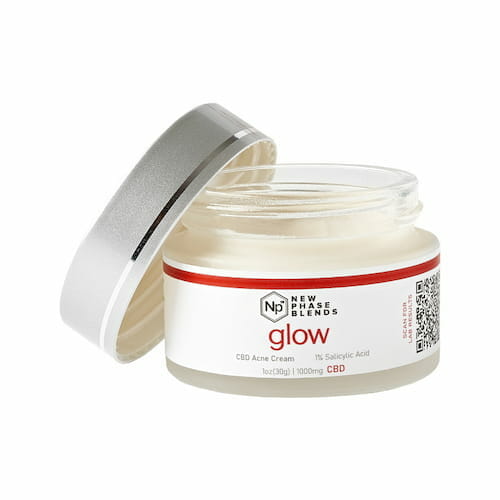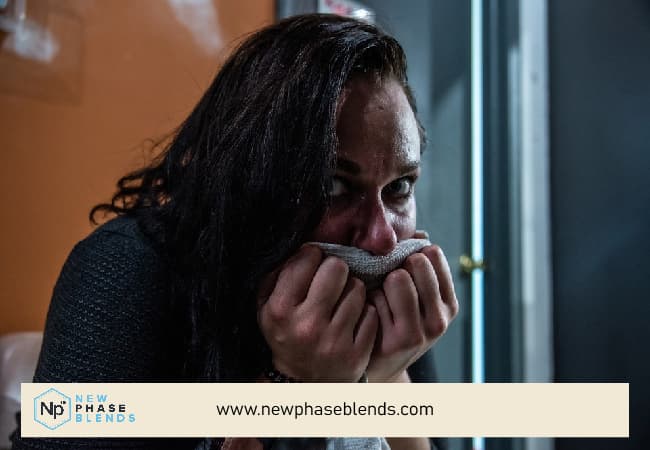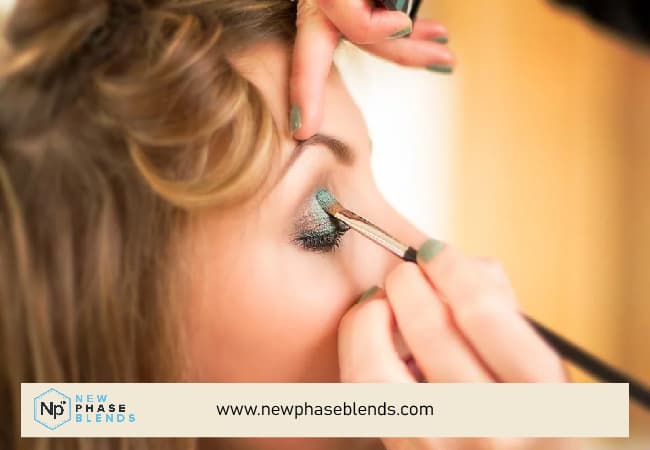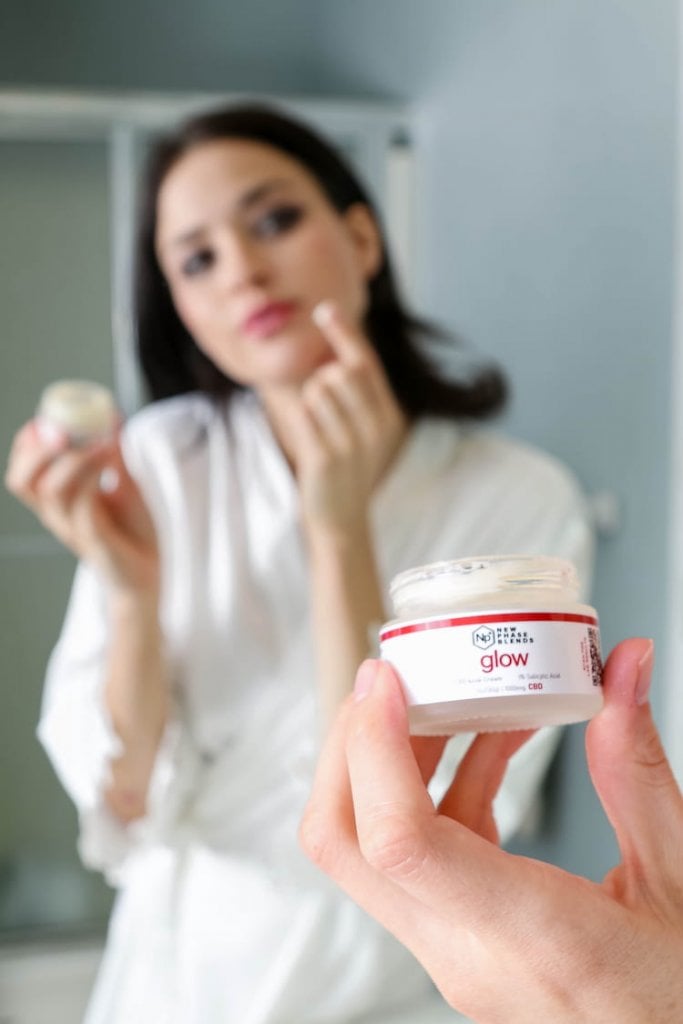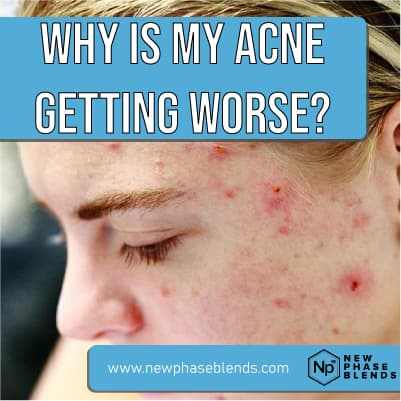Acne is a common skin condition. While it mostly affects teenagers, anyone can end up having acne. Because it’s so common, there are plenty of treatment methods available. However, for some people, acne isn’t easy to get rid of. In fact, the condition can even become worse. Do you have acne, and are you left thinking, “why is my acne getting worse?”
In this article, we’ll share ten habits that exacerbate your acne and why you might need to stop them if you want to improve your condition. In addition, some treatment methods will be provided for you.
So, Why Is My Acne Getting Worse?
Below are ten habits that cause your acne to become worse. They are in no particular order, but they are all important when it comes to proper facial skin care.
1) You Have a Dirty Cell Phone
If you sweat while you’re on a phone call, that sweat can rub onto your phone. If it isn’t cleaned, you’ll rub the sweat back on your face when you’re on your next call.
This friction can aggravate the skin and cause breakouts of acne to occur, or even worsen. Think about it: you are rubbing a dirty piece of equipment all over the side of your face when talking on your phone.
Gross.
2) Frequently Changing Your Acne Creams
New treatment methods don’t always work. This is the same with the case of acne creams. If you constantly change the creams you use, it can irritate your skin, and when this happens, your acne can be exacerbated.
Enjoy 15% off your order of 'glow' acne cream by entering coupon code glow15 at checkout!
Instead, you’ll want to give your cream time to see if it works. Generally speaking, between six and eight weeks is a good time frame to use it before you should expect to see improvements. If it doesn’t work by then, you can try a different one.
Remember, when you get a cream to treat acne, it might take three to four months for your acne to completely disappear.
3) Popping or Squeezing Pimples
When you pop or squeeze pimples, some of the puss or bacteria that comes from it can rub more into your skin. Inflammation can be caused as a result of this. In turn, it can lead to more sports and acne, as well as even leaving scars.
A better option would be to apply some cream to the spots instead and see if that helps it clear.
4) Rubbing Sweat Off Your Face When Exercising
If you’re exercising, rubbing your face with your hands or a towel can aggravate your skin. If you have acne, this can make it become worse.
You can still use a towel to clean the sweat from your face, but just make sure it’s clean, and you only gently touch your face rather than rubbing it forcefully.
5) Eating Too Much Sugar and Processed Foods
While research doesn’t necessarily show that acne is caused by eating sweets and processed foods, these foods can cause the condition to worsen. Those such as white bread, pasta, chips, chocolate bars, cookies, and cakes, are all examples of processed foods that you should avoid. If you experience flares of acne, this is one reason that might be causing it.
So, cutting down on sugary and processed foods will be a good idea if you want to see improvements.
6) You Quit Your Treatment Too Soon
As already mentioned, acne treatment doesn’t work instantly. It will take some time to see results.
So, try not to be discouraged if it doesn’t work right away and allow the treatment cream a few weeks before you decide to try a new one.
If you don’t see results between two and four weeks into treatment, you should consult your health care provider to see if any stronger creams can be offered or even speak with a dermatologist.
7) Over-Washing Your Face
A myth that many of us hold is that it’s a dirty face that causes our acne. There is very little truth to this. Washing your face too much can actually remove natural oils that are produced by the skin, therefore causing their protection to be removed.
When this happens, the bacteria on your skin can become more prone to forming acne. Washing your face twice per day is sufficient.
8) Extreme Dietary Changes
Drastic or sudden changes to your diet, whether it’s extreme calorie restriction or overeating processed and sugary foods, can lead to outbreaks. This tends to be more common during the holidays, such as at Christmas time or Easter, when we generally receive chocolate as a gift.
9) Continuing To Use Makeup and Skin Products That Cause Acne
Makeup and skincare products are often filled with oils and ingredients that can make acne worse, especially if you’re someone with sensitive skin. If you don’t stop using them, it’s unlikely that your acne will get better.
Try to avoid using makeup and skincare products unless they’re branded as “non-comedogenic,” which means that they won’t block your pores.
10) Stop Sharing Make up Brushes
Although acne isn’t contagious, sharing makeup can make your acne worse. This is because it can lead to the spreading of acne-forming bacteria or dead skin cells. Then, when you use the makeup or makeup brush with either of these on it, they can make it onto your skin and result in acne.
Never share your makeup or brushes with someone else if you have acne. This will give your acne a better chance to heal and lessen the chance of spreading.
Using CBD for Acne: An Effective Treatment
The course of treatment used for acne will depend on whether the case is mild, moderate, or severe. With mild cases, over-the-counter creams from your local pharmacy might be all that’s required. ‘Glow’ CBD acne cream is another type of cream that’s available and provides good results.
It contains a 1% salicylic acid base which cleans our your pores, while the CBD helps eliminate swelling and redness associated with acne. After all, it’s the redness and swelling that is most embarrassing, right?
Enjoy 15% off your order of 'glow' acne cream by entering coupon code glow15 at checkout!
This is why using CBD for acne works so well.
However, if the case is moderate or severe, an antibiotic might be needed, which would have to be prescribed by your doctor. If that doesn’t work, you should proceed by contacting a dermatologist.
Summary
Acne is a common skin condition that can be made worse by following certain habits. Here, we’ve laid out what ten of them are for you so that you can be sure to avoid them and not exacerbate your acne. Be sure to see your treatment through, and depending on the severity of your case, seek the appropriate method of treatment that will be right for you.
References
American Academy of Dermatology Association: https://www.aad.org/public/diseases/acne/skin-care/habits-stop
The UK National Health Service: https://www.nhs.uk/conditions/acne/
Web MD: https://www.webmd.com/skin-problems-and-treatments/features/bad-habits




